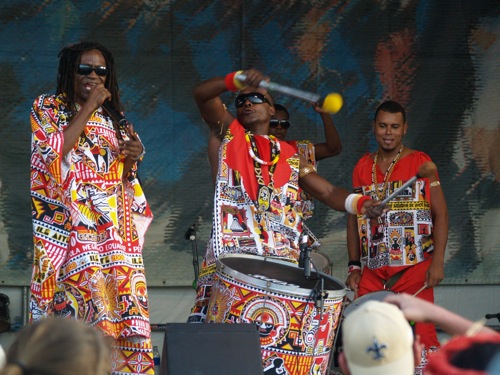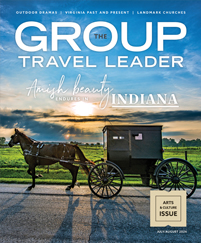
Courtesy New Orleans CVB
African-American heritage tourism isn’t just a series of history lessons. In cities across the country, vibrant neighborhoods with rich African-American traditions give visitors a chance to experience the best of this enduring culture.
If your group enjoys African-American tours, visit some of these national hotspots.
Harlem
Harlem is a neighborhood in the borough of Manhattan’s New York City. Since the 1920s, it’s been a black and African-American residential, cultural and business hub, one of New York’s most popular attractions. But, it’s much more.
“Harlem is an international community,” said Lloyd Williams, president and CEO of the Greater Harlem Chamber of Commerce, “an exciting place to listen to gospel, hip-hop, jazz or blues or to eat Southern soul, Cuban, Caribbean, Dominican, Chinese or Jewish food. You name it, it’s here.”
In the mid-’70s, the community created Harlem Day to celebrate its heritage. It morphed into Harlem Week, which now lasts four weeks each summer, with 110 events drawing 3 million adventurous people. Harlem is in the midst of its latest renaissance.
Year-round, Harlem has much to offer: the legendary Apollo Theater, with music and theater; 14 museums, national historic sites and landmarks; new art galleries; and 17 schools of higher education.
Food choices seem endless: Grab a bite at Sylvia’s Restaurant, celebrating 50 years in Harlem. Sylvia Woods is dubbed the Queen of Soul Food.
“Harlem is also a major base for religious institutions, too, like historic Riverside Church and Abyssinian Baptist Church. I could go on and on,” said Williams.
In addition, the first new hotel built in the neighborhood in 40 years, the Aloft Harlem, is a block from the Apollo.
New Orleans
New Orleans is where enslaved and free Africans and Native Americans commingled with European settlers to forge a unique multicultural atmosphere.
Most tourists know about the French Quarter, Bourbon Street and Mardi Gras, but there’s lots of cultural history to be found elsewhere around town. Those seeking African-American culture can celebrate the bicentennial of America’s first free black neighborhood, Treme, which remains an important symbol of New Orleans’ past and present.
Music is plentiful in New Orleans and an important part of the area’s African-American heritage.
“Jazz, blues, R&B, jump, Cajun and zydeco are a main part of music in New Orleans,” said Reshonda Brewster of the New Orleans Multi-Culture Tourism Network. “On any given day, pop into a venue and hear live music. It’s authentic and invites you in.”
Visit Congo Square in Louis Armstrong Park, and take in a music festival, a brass band parade or a drum circle. The Mahalia Jackson Theater is also in the park. Enjoy a musical, a comedian, a symphony orchestra or a popular singer.
New Orleans is one of America’s great culinary cities, and soul and creole cooking are a tradition.
“The food is awesome. We’re known for it. We invite you in with our music, then fill your belly with good food,” said Brewster.
www.soulofneworleans.com










